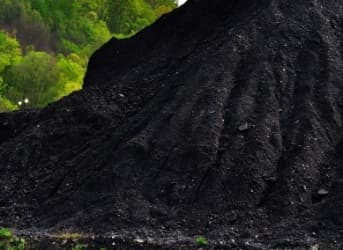The economy in coal country is being left behind the rest of America.
Coal communities have long suffered from higher rates of poverty than many other parts of the country, but they now face an extended period of decline. In regions where coal mining makes up a disproportionate share of the economy, this portends economic pain for years to come.
The Washington Post has published several articles on the economic hardship people in coal-dependent communities experience, with a focus on West Virginia. One article asked whether local and regional economies put themselves at a disadvantage by becoming overly dependent on extractive industries as an engine for growth.
In other words, was relying on coal a recipe for a stagnant economy from the start?
There is evidence that a “resource curse” can set in, in which an economy that is too dependent on natural resources suffers from corruption and poverty and retards growth in other industries.
West Virginia has one of the poorest-performing economies in the country, and counties where coal mining is concentrated are the state’s poorest and least economically diversified.
They suffer from repeated booms and busts, which are tied to coal prices and the level of production. Personal income, as a consequence, is highly volatile. And with several generations of families opting to work in the mines instead of pursuing higher education, these counties have a lower-educated populace and the economy remains reliant on the coal industry.
The newspaper followed one family as it struggled with the painful decision of whether or not to abandon their hometown because jobs in the mines have dried up.
Busts have occurred in the past, and people weather the hard times, waiting for sunnier days at some point in the future.
The difference is this time the bust is not cyclical. It is structural.
Coal is becoming increasingly uncompetitive in U.S. electricity markets. That is due to several well-documented trends, including cheap natural gas and tightening environmental regulations.
Coal industry officials and West Virginian politicians have avoided addressing the serious cracks in its foundation, instead assuring the public that all will be well once natural gas prices rise and the Obama administration ends its “war on coal.”
But there are deeper problems facing the coal industry, as Taylor KuyKendall from SNL Financial points out in an excellent article about the coal industry’s problems.
First, there is a possibility that natural gas prices will remain relatively cheap for years to come. Coal industry executives pointed to the cold winter of 2014 as evidence that coal was set for resurgence. But a cold winter will not be enough to make coal more attractive than natural gas for utilities planning billion dollar capital investments in power plants that will operate for decades. Jeffries LLC, a global investment bank, wrote in a note to investors that the cold winter won’t save big coal. “Our concern was that a weather-driven rebound in gas prices above $4 led some to believe everything was OK for coal,” the bank wrote. “Everything is not OK.”
Second, whether or not the industry thinks environmental regulations are justified, it is highly likely that the regulatory environment for coal, which is one of the most polluting forms of energy, will only get tougher. That means that projections about the health of the coal industry could be way too optimistic. Not only will it be nearly impossible to build new coal plants, but old ones might shut down at a quicker pace than anticipated.
“As we noted in response to the Obama administration's proposed CO2 regulations, given the likelihood of decades of cheap gas, it is hard for us to see power generators opting to invest billions of dollars in environmental upgrades for older coal power plants,” the Jeffries LLC report states. “Long term, we believe that the risk to further coal power plant shutdowns is to the upside.”
ADVERTISEMENT
Finally, West Virginia’s coalfields are old and depleted, with the best seams mined out. That means that even if coal does survive, West Virginia’s coal industry will continue to lose market share to coal from other places.
The decline of Appalachian coal is real and could happen faster than many people expect. This is something that West Virginia’s politicians refuse to grapple with. Instead of pushing an agenda that would diversify West Virginia’s economy, and plan for a future without coal, they have been “painting a picture of the rosy future that could await the coal industry, were it not for the Obama administration,” as Ken Ward, Jr. wrote in The West Virginia Gazette.
And as the people profiled in the Washington Post already know, that’s going to have serious human consequences.
By Nick Cunningham of Oilprice.com



















Coal is non-renewable and we are rapidly approaching the end of economically recoverable coal in essentially all coal producing regions of the US with West Virginia and Central Appalachia being the proverbial "canary" in the coal mine.
Detailed reports including data on coal cost and supply and detailing the situations where coal production costs are outstripping sales price (i.e leading to negative profit margins) available at www.cleanenergyaction.org under Research Reports.
The EIA has been misreporting US coal "reserves." We don't have anywhere near "200 years" of economically recoverable coal. To the contrary we are rapidly approaching the end of economically recoverable US coal.
We need to get our country repowered--and repowered quickly--independently of what the EPA does or doesn't do and who is or becomes the President. Time is remarkably short!
Leslie Glustrom
Boulder, Colorado
303-245-8637
lglustrom (at) gmail.com
www.Write-inChuckWood.com
Conventional natural gas peaked in 1973 and has been on a sharp downslope for the past few years.
Fracking is not "100 years" of gas, it's near or at peak. Marcellus hasn't peaked but Barnett in Texas (the first fracked gas area) has peaked.
Relocalization of food production is probably the most important response to peak energy.